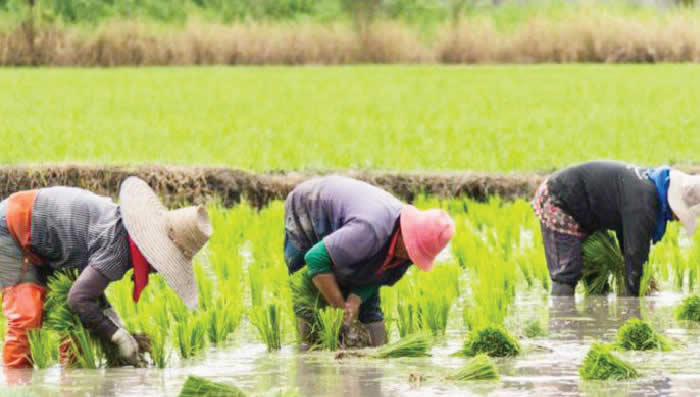
The Director-General of the Nigerian Agribusiness Group, Dr. Manzo Maigari, said the gathering was aimed at boosting farming, especially during the dry season to avoid the damages done to crops during flooding.
According to him, the youth, women farmers as well as players in the agriculture business management are brought together with the aim of sensitising them to the challenges of climate change as it affected farmers in Africa.
Maigari, a former Commissioner of Agriculture & Forestry under Governor Nasir El-rufai of Kaduna State, spoke in an interview with journalists on the sideline of the two-day workshop on Climate Smart Agriculture Technologies and Practice in line with Food Safety Standards and Grades, in Kaduna.
He said the four years project was fully funded by the Bill Gates Foundation with Nigerian Business Groups as collateral and the Federal Ministry of Agriculture as partner as well as the Kaduna State government.
The former Commissioner further explained how he lost 500 hectares of rice farm to this year’s flooding, noting if quantified in monetary term, it stood at N2 billion.
He, however, noted that it had become imperative to engage and involve insurance companies in farming business in order to get compensated in the event of such incidents.
He said, “This is a regional workshop that brings together youths and women farmers and players in Agriculture business management with the aim of sensitising and educating them on the challenges of climate change as it affects farmers today across Africa and even across the world.
“The participants are drawn from across the whole North-West. We are looking at 50-500 participants. We are targeting a minimum of 500 participants at this two days workshop.
“This initiative is 100 per cent funded by the Bill Gates Foundation with Nigerian business groups as collateral and with the Ministry of Agriculture as partner as well as the Kaduna State government. It is a four-year project.
“However, I want to speak practically as an individual who had lost so much to flooding. I lost 500 hectares of rice farm to flooding this year, and not a single strand of the rice survived, and if you want to quantify it in terms of monetary value, it is not less than N2 billion.”
“We also need to look at alternative to rain season farming. So if you do dry season farming, you won’t experience flooding. And we need to look for varieties of crops, rice that can survive flooding, stay under water for days without dying”.
Earlier, speaking on ‘Small Scale Climate Smart Crop Production,’ Prof. Emeka Oruonye noted that the need to grow more food crops and increase the income of the small-scale farmers had become necessary in order to mitigate poverty and achieve food security.





